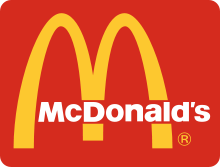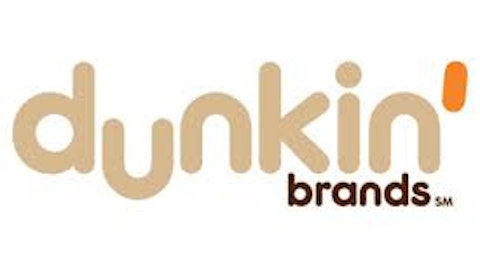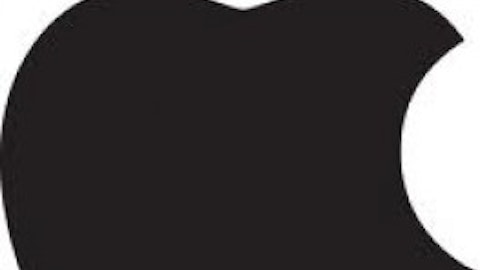Fast-food workers across the nation are demanding higher wages, saying they are unable to survive on minimum wage. Walkouts over the last year — and especially over the last two months — have disrupted normal operations at many fast-food chains, most notably at McDonald’s Corporation (NYSE:MCD).
Everyone wants more money, but fast-food workers are especially desperate for higher wages. An employee who works 60 hours per week at the federal minimum wage ($7.25 per hour) would bring in just $19,368 after taxes if he or she never took a week off. Most workers are unable to find 60 hours of employment each week, which means they bring in even less money — hardly enough to live on and support a family.
As a result, fast-food workers and union organizers are demanding a raise in the minimum wage to $15 per hour — an enormous wage hike. Fast-food workers cite the billions of dollars in profits that McDonald’s Corporation (NYSE:MCD) makes each year as evidence of its ability to hike wages, while McDonald’s Corporation (NYSE:MCD) sympathizers say a doubling of wages would be catastrophic for the company. As usual, both sides have distorted their respective positions, so investors should ignore the noise and get the facts.
Can fast food chains afford a wage hike?
First of all, doubling the federal minimum wage would not double the amount fast-food chains like McDonald’s Corporation (NYSE:MCD), Burger King Worldwide Inc (NYSE:BKW), and Jack in the Box Inc. (NASDAQ:JACK) pay their employees. According to Businessweek, the typical wage worker at fast-food restaurants earns about $9 an hour. The workers making minimum wage are predominately seasonal workers, such as high-school and college students. So a wage increase to $15 per hour would be a two-thirds increase, not a doubling.
However, even a two-thirds wage increase would be devastating to fast-food chains’ profits. Although information on franchisee profit margins is hard to come by, public fast-food chains release enough data about their company-owned restaurants for investors to get insight into their ability to increase wages.
McDonald’s Corporation (NYSE:MCD), Burger King Worldwide Inc (NYSE:BKW), and Jack in the Box Inc. (NASDAQ:JACK) pay wages that equate to 25% to 30% of restaurant sales. An aggressive (i.e., inflated) calculation of these restaurants’ profit margins yields a 10% to 20% margin — this excludes corporate-level sales, general, and administrative expenses (SG&A) that are necessary to advertise and run the company.

Even using this inflated measure of profitability, it is clear that each percentage point increase in payroll expenses would have an enormous impact on overall profitability. For instance, an increase of just one percentage point of Burger King Worldwide Inc (NYSE:BKW)’s payroll as a percentage of sales would cause its bottom line to shrink by close to 9% (11.27% profit margin falls to 10.27%, an 8.8% decrease).
Moreover, even McDonald’s Corporation (NYSE:MCD) would have difficulty sustaining a large increase in wages; a 20% wage increase would decrease McDonald’s net profit by 17%. This assumes that wages account for just half of total payroll and benefits — likely a conservative estimate — and that franchisee income would decline by the same amount as company-owned store income.
| 2012 | 20% Wage Increase | |
| Company-owned store revenue | $18.6 billion | $18.6 billion |
| Payroll & benefits | ($4.7 billion) | ($5.17 billion) |
| Other company-owned store expenses | ($10.5 billion) | ($10.5 billion) |
| Company-owned store profit | $3.4 billion | $2.93 billion |
| + Franchise Fees | $7.4 billion | $6.38 billion |
| – SG&A and other corporate expenses | $2.21 billion | $2.21 billion |
| McDonald’s Net Income | $8.6 billion | $7.1 billion |
In essence, since wages are such a high percentage of fast food companies’ cost structures, each percentage hike in wages accounts for nearly the same drop in net income. This strong, inverse relationship between wages and profits makes it difficult for fast food companies to raise wages, much less double them.
Of course, McDonald’s et al could simply raise their prices. But I’m pretty sure the chains are already milking their customers for as much money as they can get. If Burger King Worldwide Inc (NYSE:BKW) could sell just as many Whoppers for $1 more than it sells for today, it would. But competition makes low prices a necessity, so price increases would cause sales volumes to fall, adding even more pressure to profits.
Even worse, the people who work at fast-food chains tend to be in the demographic that frequents them the most. A 20% price increase to offset higher wages means 17% higher food prices for the poorest consumers in the American economy. This is hardly the path to digging oneself out of poverty and joining the middle class.
Aside from higher food prices, higher wages would likely mean lower employment. If McDonald’s cannot sustain a 20% wage hike without a significant hit to its profitability, it will have to increase its efficiency in order to maintain a respectable profit margin. This means hiring fewer workers and requiring the ones it has to do more.
Bottom line
Despite apparently enormous profits, most fast-food chains operate on a tightrope; even a slight increase in costs has a huge impact on profits. If the federal minimum wage is raised by more than, say, 10%, investors should abandon Burger King Worldwide Inc (NYSE:BKW) and Jack in the Box Inc. (NASDAQ:JACK) and remain cautious with McDonald’s. These companies simply cannot tolerate large increases in costs and maintain anything close to their current levels of profitability.
The article Can Fast-Food Chains Survive a Wage Hike? originally appeared on Fool.com and is written by Ted Cooper.
Ted Cooper has no position in any stocks mentioned. The Motley Fool recommends Burger King Worldwide and McDonald’s. The Motley Fool owns shares of McDonald’s.
Copyright © 1995 – 2013 The Motley Fool, LLC. All rights reserved. The Motley Fool has a disclosure policy.




